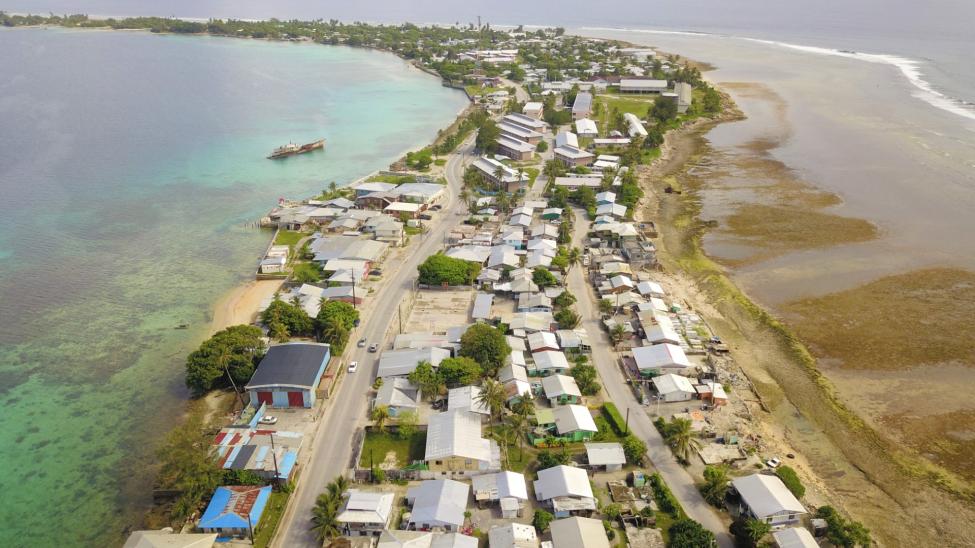Many small island states live in fear of natural disasters, as unprecedented storms become more frequent, says Commonwealth Secretary-General Patricia Scotland.
Natural disasters had increased by 75 percent over the past two decades, causing US$3 trillion of economic losses, Scotland told RNZ Pacific. The worst affected were developing countries, she said.
“If you look at where those losses occurred, the majority – 99 percent of them – occurred in the Global South, and yet we know that the G20 are responsible for 80 percent of the global greenhouse gases,” Scotland said.
“The least developed nations contributed to just 5 percent of greenhouse gas emissions.”
Earlier this year, Vanuatu was hit by two cyclones, Judy and Kelvin, in the space of four days. This came just under three years after the country was hit by category 5 Cyclone Harold in 2020 and eight years after the Category 5 Cyclone Pam in 2015 – both the largest recorded cyclones to hit Vanuatu.
Fiji recorded its most powerful cyclone in 2016 with Cyclone Winston, while Tonga recorded its most powerful cyclone in 2018 with Cyclone Gita. Both countries have recorded three severe cyclones in ten years.
In February, Mauritius, in the Indian Ocean, was hit by Cyclone Freddy – a five-week long storm – the longest lasting tropical cyclone ever recorded.
The frequency of storms has also increased in the Caribbean region. In 2019, Category 5 Hurricane Dorian was the most powerful storm to have struck the Bahamas, leaving over 70,000 people homeless and 84 dead.
“My own country of birth, the Bahamas, was devastated,” Scotland said, adding that “200 percent of our GDP was destroyed.”
“This threat, particularly to the small and developing countries, is existential.
“It’s omnipresent and now that we’re entering the hurricane season, for instance in the Caribbean, we’re all wondering who is next?
“Who will be the country that will be struck, and everyone knows it’s going to be someone and they’re all praying it’s not them.”
In June, delegations from around the world attended the Paris Climate Finance Summit.
Frustration was expressed in speeches delivered by representatives of developing and under-developed nations.
“A number of the commitments that have been made have not really been fully lived up to,” South African President Cyril Ramaphosa said.
“Sometimes we’ll sit at conferences like this and say, ‘Yes, we will make this available and that available,’ and we believe you,” Ramaphosa said.
“We believe you, but we must now see action flowing from that.”
The summit finalised a US$100 billion pledge by wealthy nations for a fund to be set up to support poorer nations.
The World Bank also agreed to pause debt repayments for countries struggling with climate disasters.
However, leaders of vulnerable nations were dissatisfied with the outcome.
They want a debt forgiveness programme to be implemented, because wealthier nations were responsible for the majority of greenhouse gas pollution.
“It’s clear that the international financial architecture has failed in its mission to provide a global safety net for developing countries,” UN secretary general Antonio Guterres said.
Scotland said a review of how development aid was delivered was needed, so the measures adopted at the recent Paris summit were leading in the right direction.
“Are they enough? I don’t think so. Do we need to push harder? Absolutely,” she said.
“Renewing and reforming the way the international financial institutions work is critically important.
“Many of our nations have been devastated… Vanuatu had two cyclones in the space of 36 hours.
“These are not caused by the affected states, they are an exogenous shock resulting from the climate crisis,” she said.
SOURCE: RNZ PACIFIC/PACNEWS














